Topiku makes SoCal streetwear-inspired hats from textile offcuts, leather scraps and HDPE plastics typically found in buckets. Monty Hasan, Founder of Topiku set up the sustainable fashion brand after meeting artisan villagers in his native Indonesia, who crafted bags from upcycled waste materials such as billboards.
The $3 trillion apparel industry accounts for 10% of global carbon emissions, making it the second most polluting industry after oil.
According to a recent report published by Quantis, more than 80% of fashion’s carbon footprint is generated during production, which means that mitigating the environmental impact of garment products requires brands to reevaluate their sourcing.
Transforming trash into treasure
In 2015, a year after he first considered the idea of producing upcycled hats, Hasan returned to Indonesia to source for a hat manufacturer, and whilst looking for road directions during a torrential rain, he had a serendipitous meeting with the hat-producing community of Desa Rahayu, Cigondewah, who has since become his production partner for Topiku.
Topiku’s logo, hat patches and adjustable straps are made from salvaged shoe, belt and jacket leather, the brim is created from recycled plastic buckets, and the buttons placed on top of the hats are recycled from aluminium and tin cans.
The base of the hats are produced from textile offcuts and adorned with Indonesian batik motifs, which are sourced from Indonesian fashion label Danar Hadi. Topiku also works with a local textile manufacturer to source leftover and deadstock fabrics from curtain production – the majority of curtain offcuts are made from GOTS-certified organic cotton, a lower-impact source of the ubiquitous clothing fabric.
Responsible supply chain management
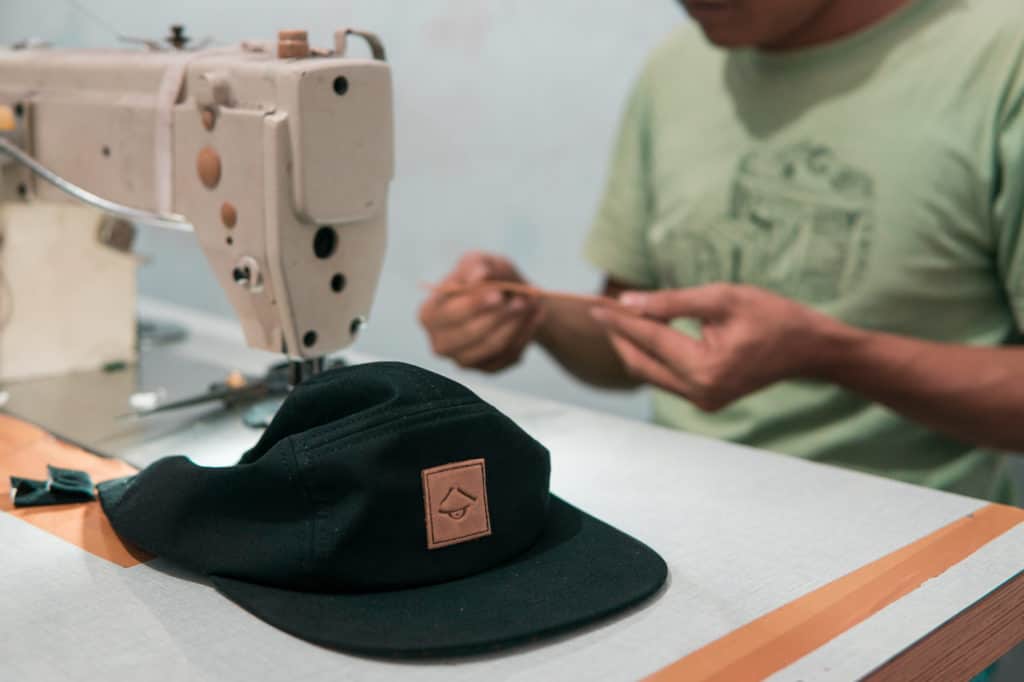
“By developing an ecosystem of responsible waste material management, producers with leftover materials can make a quick buck on something that would be thrown away, input costs are lower, which allows for more flexibility for increased labor wages, and landfills receive less waste. It’s a win-win-win for everyone.”
Monty Hasan, Founder, Topiku
Unlike most apparel companies, Topiku doesn’t outsource its production to a third party contractor, and works directly with the hat-making artisans, which allows the brand to maintain ethical work conditions and efficient production processes.
The greatest challenge the eco-friendly venture has faced so far is finding a reliable source of waste fabric. Instead of engaging intermediaries to procure the leftover textiles as they had done initially, they are now partnering with the factories directly, which has removed a significant bottleneck in their manufacturing.
Social and environmental impact
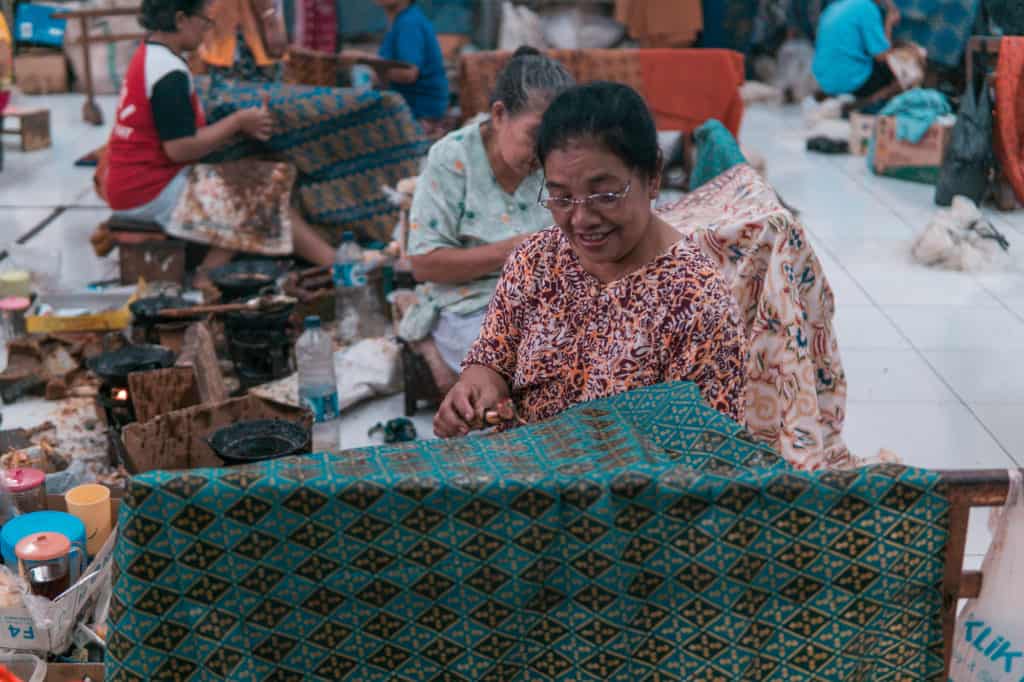
“Our environmental footprint is drastically lower as we do not use any new inputs to create fabrics, the most intensive processes being fiber production and dyeing. This also allows us to have a lower cost-per-unit, which we then can reinvest into our hat-makers. By paying them almost double of the local minimum wage, we help the artisans maintain salaries closer to living wages, teaching them that working with trash can earn them more cash.”
Monty Hasan, Founder, Topiku
Topiku works with Waste4Change, a social enterprise championing sustainable end-to-end waste management, to sponsor the health insurance of 14 waste pickers and to fund sustainable waste management education and clean-up programs.
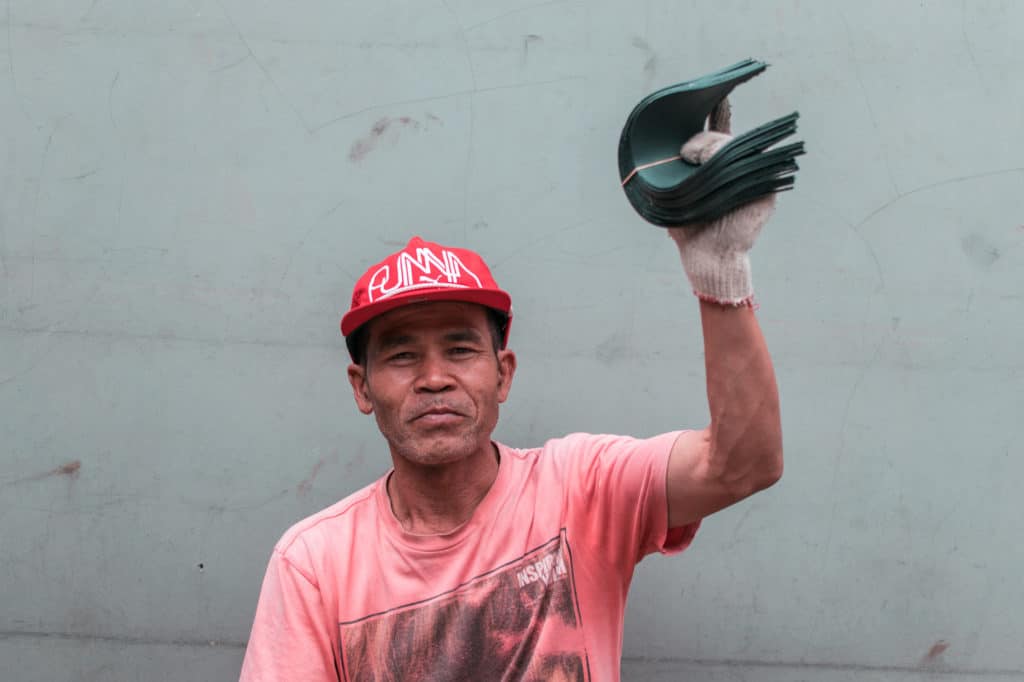
“We can now proudly say that our hats are 95% made from upcycled and recycled waste materials. There’s always room for improvement, and we hope that the last 5% from the buckle can be replaced with an alternative source soon.”
Monty Hasan, Founder, Topiku
Topiku is constantly on the look-out for more sustainable fabric alternatives, and is currently evaluating the potential to use recycled polyester from plastic bottles (rPET) in its manufacturing.
Debunking common sustainability myths
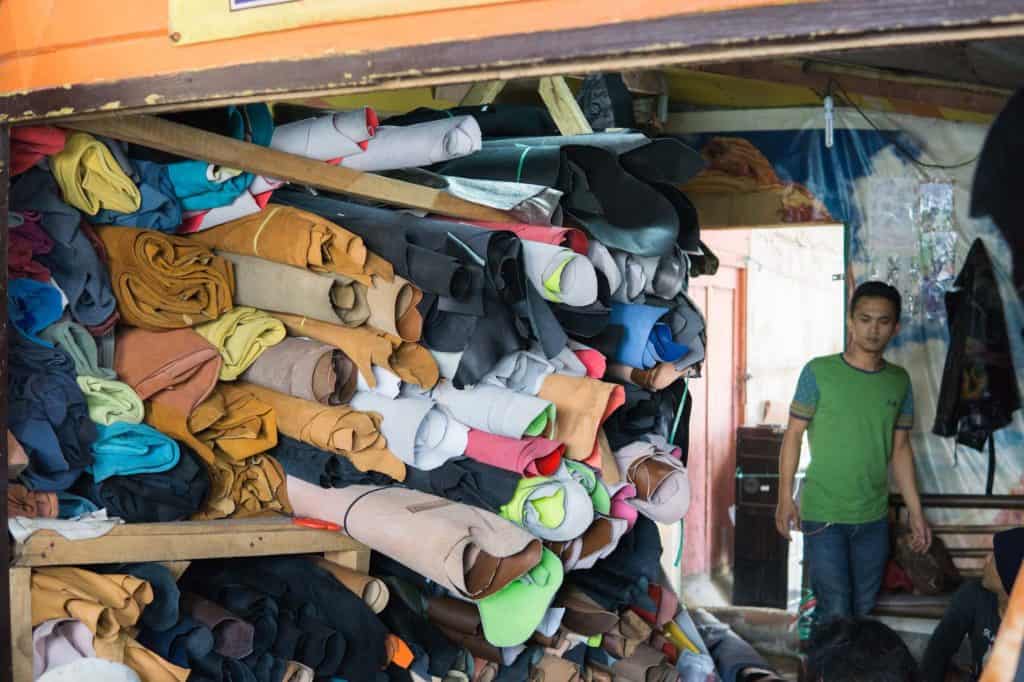
Hasan wraps up our interview by demystifying some of the gravest sustainability challenges, especially in countries such as Indonesia, the world’s second largest plastic polluter after China.
“Greenwashing” brands often exploit the sustainability agenda as a post-production marketing ploy, but being eco-friendly is not enough to be labeled sustainable, admits Hasan. “Planting a tree won’t be enough to offset your carbon footprint if your fabric sourcing is energy and water intensive – as well as generates harmful chemical byproducts.”
Although a supporter of beach clean ups, Hasan believes that waste must first be stopped upstream by educating communities on the detrimental impact of careless littering and by providing a viable alternative to single-use products.
“The biggest misinformation I see is the amount of people who support ocean clean ups. They’re great and all, but until you tackle the issue on land, you’re not addressing the problem! It’s like trying to bail water out of a sink with a cup; you might slow down the sinking, but you’re not patching the hole.”
Monty Hasan, Founder, Topiku
Resolving Indonesia’s waste problem
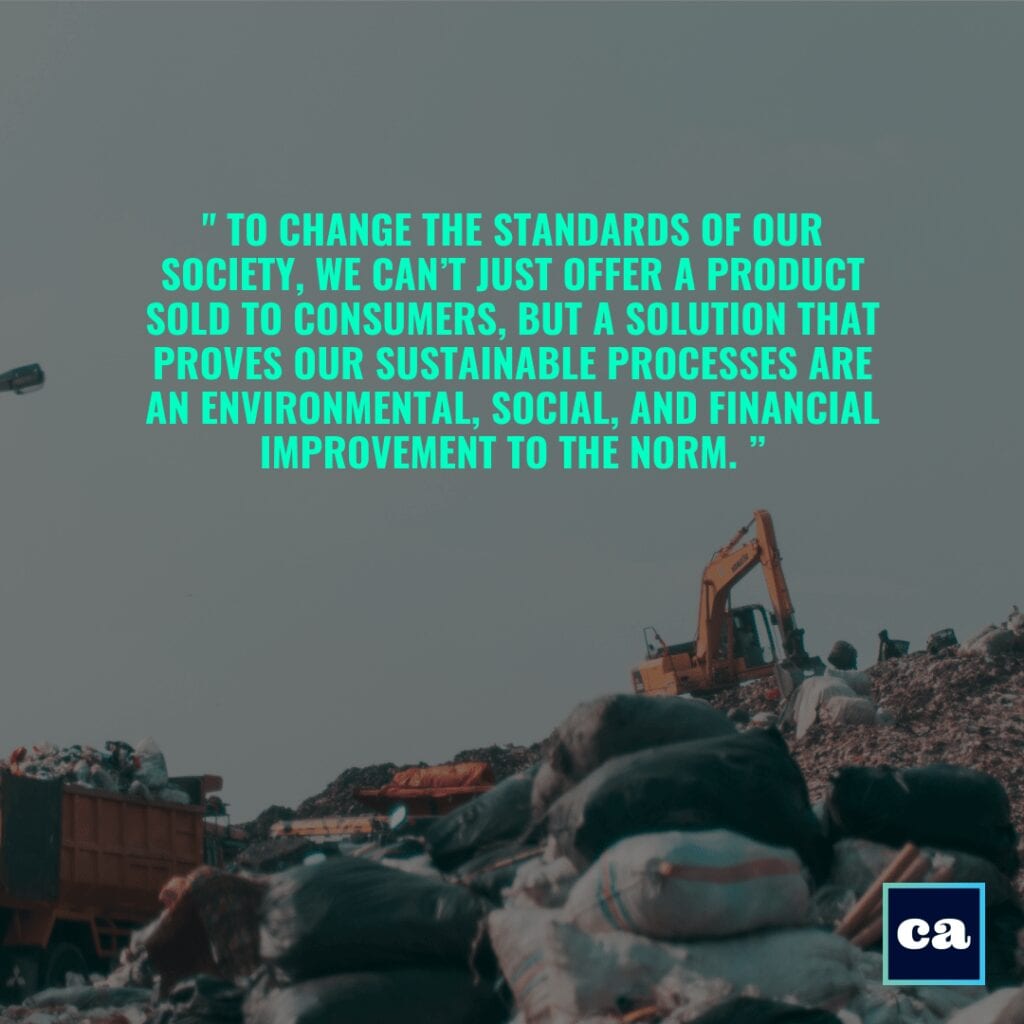
Indonesia has no central government infrastructure for waste management – weekly waste collection services that are taken for granted in other parts of the world are a foreign concept in the country.
Social enterprises such as Waste4Change or the Plastic Bank, a Canadian venture, which has recently introduced a blockchain-powered app to help scavengers monetize plastic waste in Bali, are thus taking on the challenge of building out a more responsible waste management ecosystem.
Bank Sampah, which translates as ‘waste bank’, provides a grassroots solution for more sustainable waste collection. Modeled on traditional banking services, households and waste pickers deposit their non-organic waste in a neighborhood trash bank (some also accept organic waste, while others encourage composting at home), which is then sold to factories for reuse or recycling. Deposits are weighed and given a monetary value, which can be withdrawn in cash form after deducting a fee to cover the overhead costs of the waste bank.
“I suggest social enterprises to look more upstream in the supply chain. To change the standards of our society, we can’t just offer a product sold to consumers, but a solution that proves our sustainable processes ARE an environmental, social, and financial improvement to the norm.”
Monty Hasan, Founder, Topiku
Related Post:










